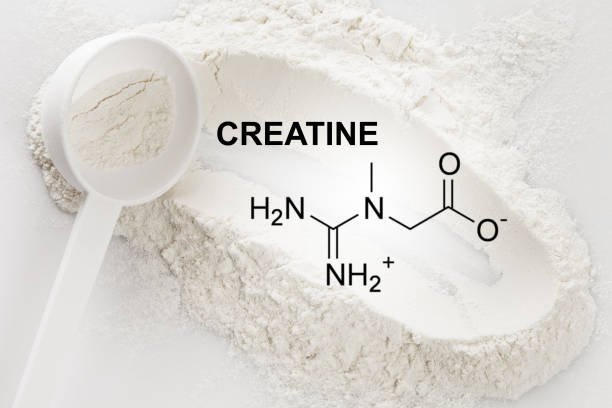Introduction: Why Collagen Is a Game-Changer for Muscle Recovery
When it comes to muscle recovery, many of us are familiar with the basics—rest, hydration, protein intake, and maybe even a good massage. But collagen for muscle recovery? This powerhouse protein might not be the first thing that comes to mind when you think about healing those sore muscles after a tough workout. Yet, it’s increasingly being recognized as an essential component of effective recovery strategies.
In this article, we’ll dive deep into the role of collagen for muscle recovery, exploring how it works, why it’s important, and how you can incorporate it into your routine to boost your fitness and overall health. Whether you’re an athlete, a weekend warrior, or just someone looking to take better care of their body, this guide will offer you valuable insights.
What Is Collagen?
Collagen is the most abundant protein in your body, making up about 30% of its total protein content. It’s a key structural protein found in your skin, bones, tendons, ligaments, and muscles. Think of it as the “glue” that holds everything together. Without collagen, your body would literally fall apart.
There are at least 16 different types of collagen, but the majority of it—about 80–90%—consists of Types I, II, and III. Each type has a specific role in your body, with Type I being the most common and found in your skin, bones, and tendons.
How Does Collagen Work in the Body?
Collagen provides structure and strength to various tissues throughout your body. In muscles, collagen forms a network of fibers that give your muscles their strength and elasticity. It also plays a critical role in the repair process when your muscles are damaged—something that happens every time you exercise.
When you work out, particularly during weightlifting or any high-intensity exercise, your muscles experience tiny tears. This is a normal part of muscle growth and strengthening, as your body repairs these microtears, making your muscles bigger and stronger. Collagen is vital in this repair process, as it provides the necessary scaffolding for your muscles to rebuild.
The Science Behind Collagen and Muscle Recovery
You might be wondering: How exactly does collagen help with muscle recovery? The answer lies in the amino acids that make up collagen—glycine, proline, and hydroxyproline. These amino acids are crucial for the production of new muscle tissue and the repair of existing tissue.
When your muscles are damaged, collagen provides the building blocks needed to repair and rebuild them. Studies have shown that collagen supplementation can help improve muscle mass, strength, and recovery time, especially in older adults or those recovering from injury.
Why is collagen important for athletes?
For athletes, recovery is just as important as training. Overtraining or not allowing your muscles to recover properly can lead to injuries, fatigue, and a decrease in performance. Collagen supplementation can be a game-changer for athletes looking to optimize their recovery process.
Collagen supports the health of your joints, tendons, and ligaments, which are all put under stress during exercise. By strengthening these connective tissues, collagen can help prevent injuries and improve your overall athletic performance.
How to Incorporate Collagen Into Your Diet
Incorporating collagen into your diet is easier than you might think. Here are some simple ways to get started:
- Collagen Supplements: One of the most popular ways to boost your collagen intake is through supplements. These are available in powder, capsule, or liquid form and can easily be added to your daily routine. Hydrolyzed collagen, also known as collagen peptides, is the most common form used in supplements because it’s easier for your body to absorb.
- Bone Broth: Bone broth is a natural source of collagen and has been used for centuries to support overall health. It’s rich in not only collagen but also other important nutrients like amino acids and minerals. You can make your own bone broth at home or buy it pre-made.
- Collagen-Rich Foods: Certain foods are naturally high in collagen, such as chicken skin, fish, and egg whites. While these foods can provide some collagen, it’s important to note that the amount is much lower than what you’d get from a supplement.
- Vitamin C: Don’t forget about vitamin C! This essential nutrient plays a crucial role in collagen synthesis. Incorporate foods high in vitamin C, like citrus fruits, bell peppers, and strawberries, into your diet to support your body’s natural collagen production.
Collagen vs. Other Protein Sources: What’s the Difference?
You might be wondering, Why not just stick with traditional protein sources like whey or plant-based proteins? While these proteins are excellent for muscle building, they don’t offer the same benefits as collagen when it comes to connective tissue health.
Whey protein, for example, is great for building muscle mass, but it doesn’t provide the specific amino acids found in collagen that are necessary for the health of your joints, tendons, and ligaments. By incorporating both collagen and other protein sources into your diet, you can ensure that you’re supporting both muscle growth and recovery.
Common Myths About Collagen
As with any popular supplement, there are plenty of myths surrounding collagen. Let’s debunk a few of them:
- Myth #1: Collagen is only for your skin. While it’s true that collagen is great for skin health, its benefits go far beyond that. Collagen plays a crucial role in the health of your muscles, joints, and bones.
- Myth #2: All collagen supplements are the same. Not all collagen supplements are created equal. It’s important to choose a high-quality supplement that uses hydrolyzed collagen for better absorption.
- Myth #3: You don’t need collagen if you eat a healthy diet. While a healthy diet is essential, it can be difficult to get enough collagen through food alone. Supplementation can help fill in the gaps.
Potential Side Effects and Considerations
While collagen is generally considered safe, it’s always a good idea to talk to your doctor before starting any new supplement, especially if you have any pre-existing health conditions.
Some people may experience mild side effects like digestive discomfort when taking collagen supplements, but these are usually rare and can often be avoided by starting with a smaller dose and gradually increasing it.
How to Choose the Right Collagen Supplement
With so many collagen supplements on the market, it can be overwhelming to choose the right one. Here are a few tips to help you make an informed decision:
- Look for Hydrolyzed Collagen: This form of collagen is broken down into smaller peptides, making it easier for your body to absorb.
- Check the source: Collagen supplements can be made from various sources, including bovine (cow), porcine (pig), and marine (fish). Choose a source that aligns with your dietary preferences and any allergies you may have.
- Read the label: Look for a supplement that is free from additives, fillers, and artificial ingredients. The best collagen supplements are often made from grass-fed, pasture-raised, or wild-caught sources.
Personalizing Your Collagen Routine
Everyone’s body is different, so it’s important to find a collagen routine that works for you. Some people prefer taking their collagen in the morning with coffee, while others like to mix it into a post-workout smoothie. Experiment with different options and see what feels best for your body.
Conclusion: Is Collagen Worth It for Muscle Recovery?
In a word, yes. Collagen is a powerful tool for supporting muscle recovery, joint health, and overall fitness. Whether you’re an athlete looking to improve your performance or just someone who wants to take better care of their body, incorporating collagen into your routine can make a significant difference.
Remember, though, that collagen is just one piece of the puzzle. A well-rounded approach to health and fitness, including a balanced diet, regular exercise, and adequate rest, is key to achieving your goals. But with the added support of collagen, you’ll be well on your way to stronger, healthier muscles and joints.



